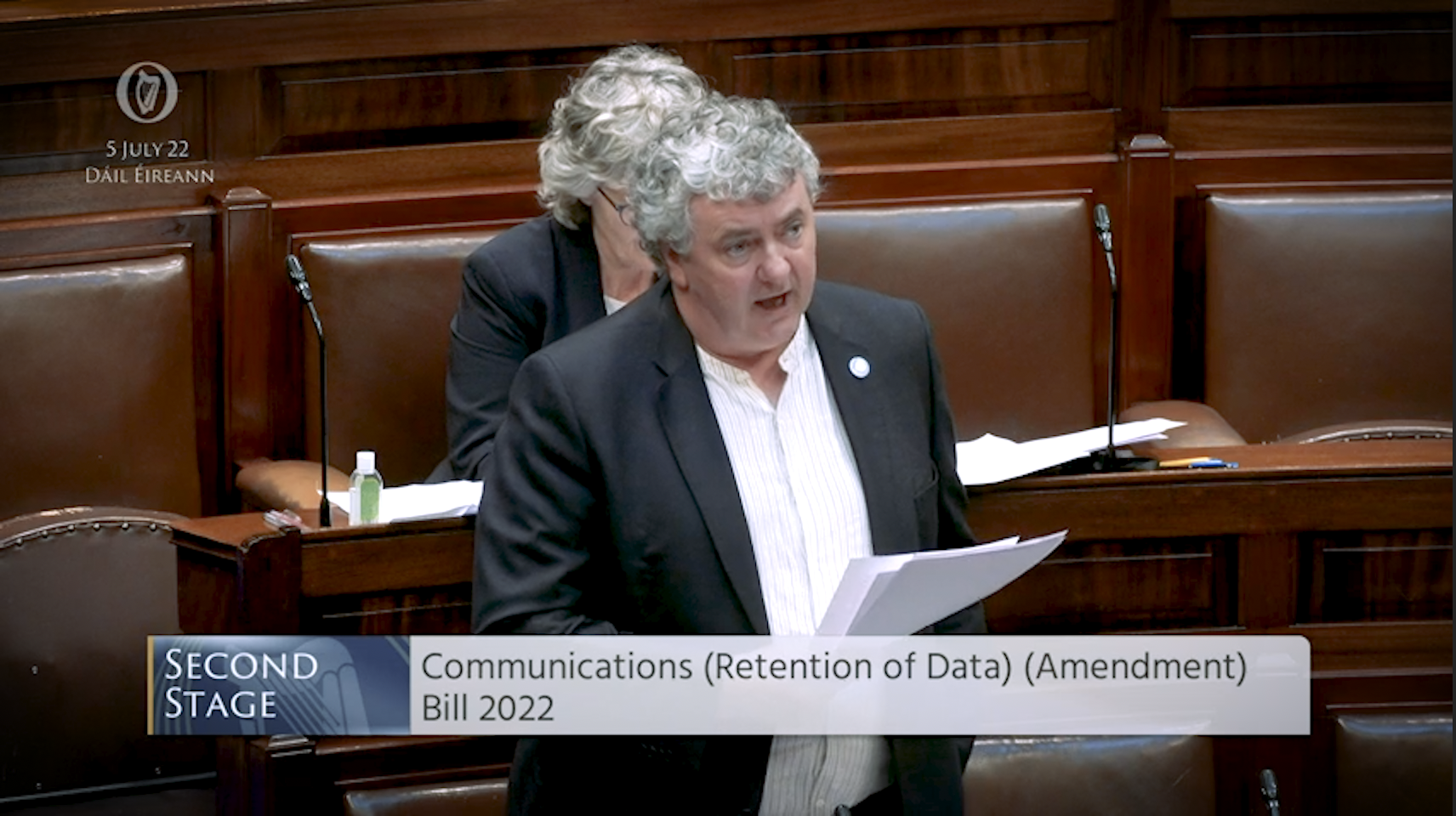- Pringle: We need a policy that recognises the importance of inshore fishing
- Pringle: Disabled people and carers face crisis of State neglect
- Pringle: Failed FF/FG housing policies forcing people to put their lives on hold
- Pringle welcomes Donegal council motion on Occupied Territories Bill: ‘We cannot stand by in the face of genocide’
Pringle: Data retention bill is ‘messy, incomplete and legally questionable’
- Updated: 6th July 2022

Independent TD for Donegal, Thomas Pringle, has raised concerns over a bill on data retention, calling it, “messy, incomplete and legally questionable”.
Addressing the Dáil on Tuesday, Deputy Pringle also said the bill had not received proper scrutiny due to the Government’s rushed timeline. He said the Justice Committee, of which he is a member, conducted pre-legislative scrutiny on the bill last Thursday.
However, Deputy Pringle said: “Unfortunately, due to the ridiculously short timeline we have been forced to work to, this scrutiny had no influence whatsoever on the legislation and the whole exercise was sadly, and quite frankly, pointless.”
The deputy said: “I would like to point out that concerns regarding the rushed process of progressing this legislation came up time and time again during the committee meeting. Both TDs and the witnesses present agreed that the rushed process and lack of mandatory consultation will lead to a bill that is vulnerable to legal challenges.”
The deputy cited several issues with the Communications (Retention of Data) (Amendment) Bill 2022.
Deputy Pringle said: “I strongly believe that a sunset clause should have been included, given that this legislation is supposed to be a temporary measure.” He and others had brought forward an amendment to add the clause.
He also expressed concern for the lack of definition of the phrase ‘security of the State’, an omission The Irish Council of Civil Liberties and Data Rights Ireland also highlighted. The deputy said that in committee stage it was said the Department would decide what the security of the State is.
Deputy Pringle said: “And I think therein lies the crux of the problem. Because if it’s down to the Department or the minister deciding what constitutes security of the State, that’s a very arbitrary thing.”
The deputy said: “It is very important to understand what and who determines what a threat to the security of the State is. This cannot be left to interpretation and despite continuously raising this, I am very disappointed to see that it has not been included in the final legislation.”
He said it also appears that this legislation could breach current data protection laws, which require a data protection impact assessment where ‘a type of processing, and in particular a type of processing using new technology, is likely to result in a high risk to the rights and freedoms of individuals’.
Deputy Pringle said: “It is clear that there has not been adequate time for consultation and proper impact assessments, which has led to this incredibly weak legislation.”
The bill also provides certain members of An Garda Síochána, the Defence Forces, the Revenue Commissioners and the Competition and Consumer Protection Commission access to user data retained by service providers without judicial or independent oversight or review.
Deputy Pringle said: “This seriously needs to be addressed going forward. Without the sufficient safeguards there is potential for possible abuses and we cannot allow for this.”
The deputy said: “I absolutely oppose this legislation in its current form. It’s messy, incomplete and legally questionable.”
He said the bill does not achieve what it aims to achieve, saying, “The rushed progression of this legislation means that citizens’ rights are not properly considered.
“I strongly urge the Government to delay this legislation until after the recess and let us consider it properly. This legislation is far too important to be rushed through within days,” Deputy Pringle said.



